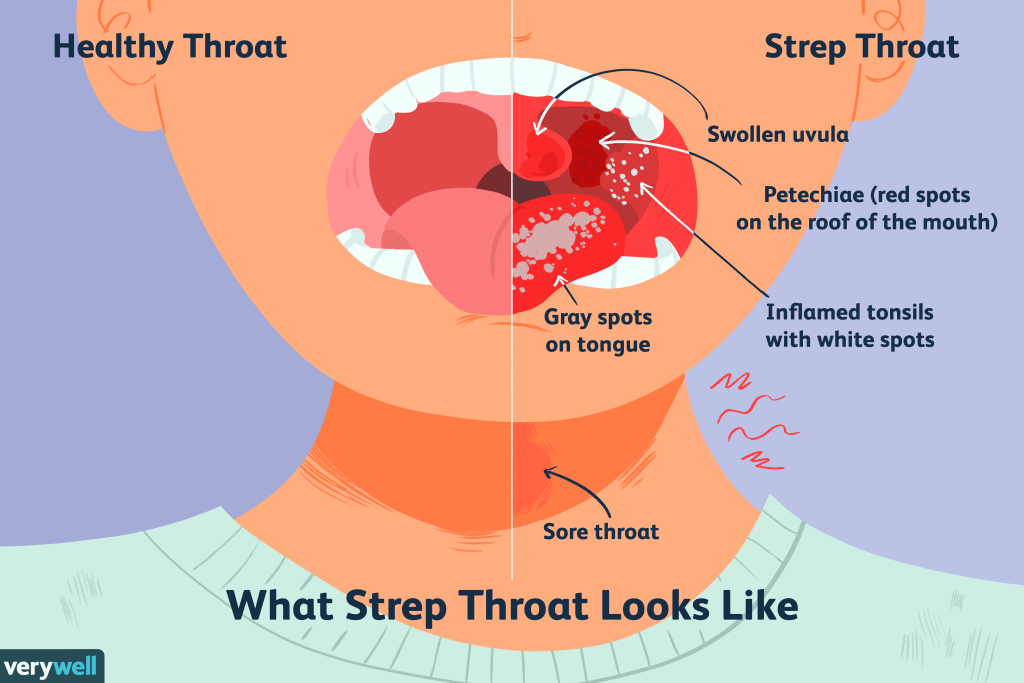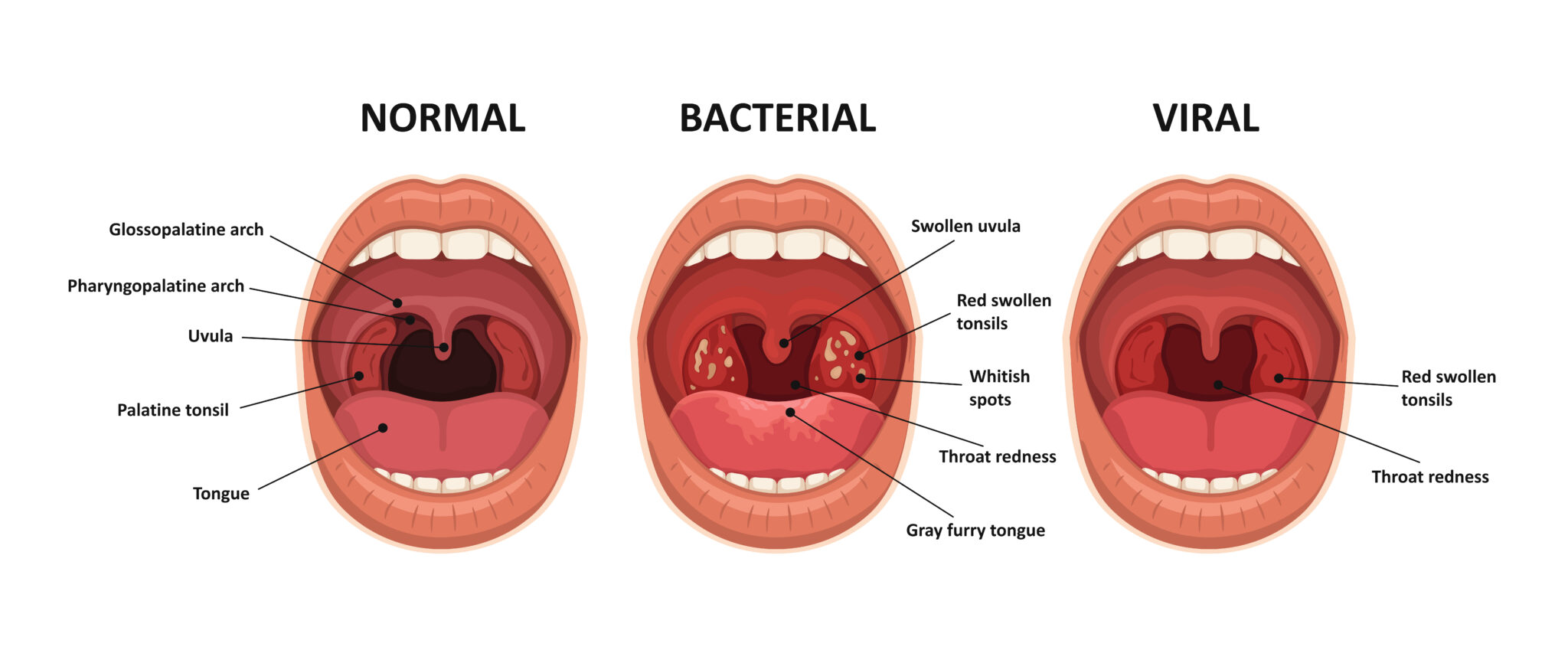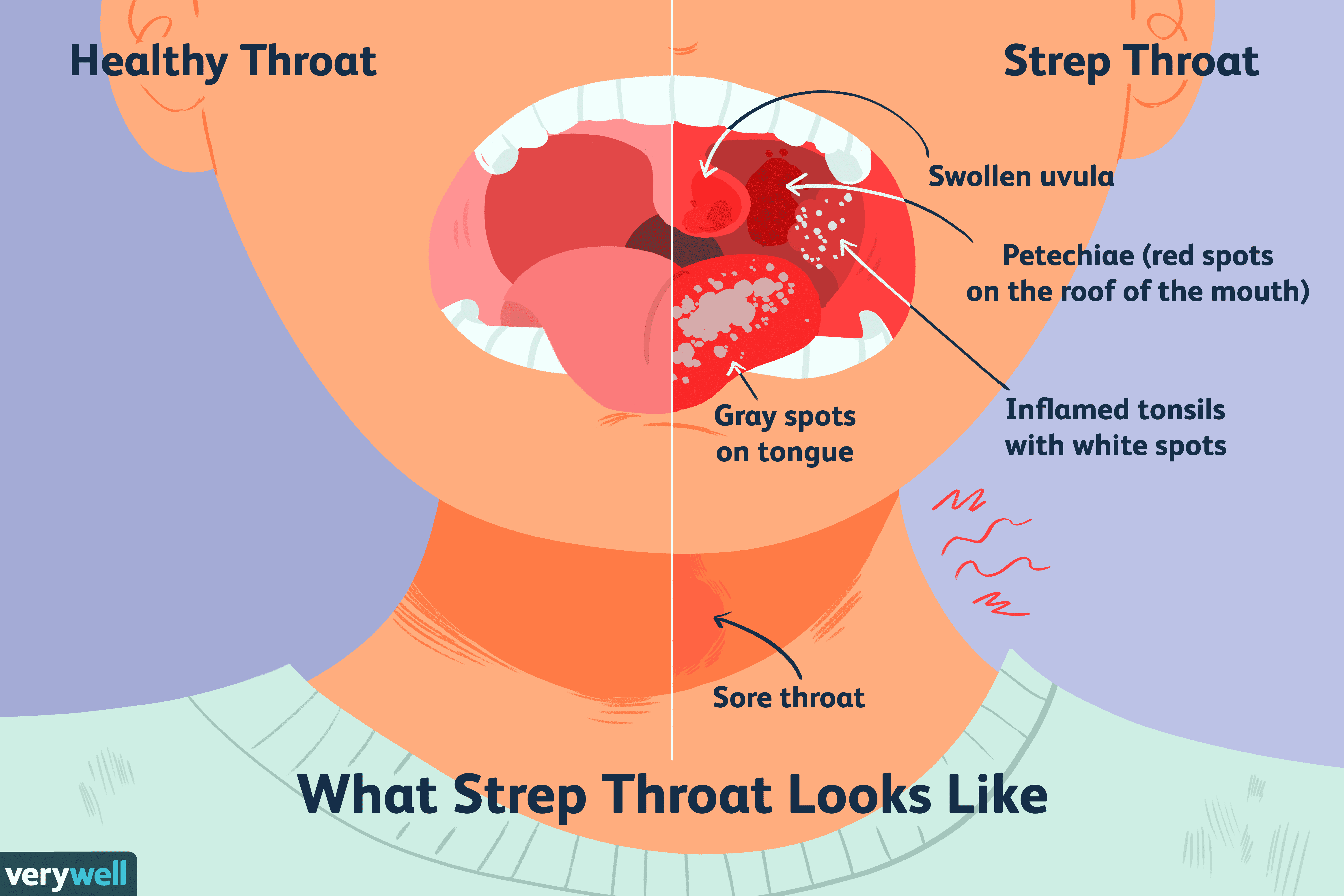
What Are The Common Causes Of Strep Throat?
The word “strep” is a derivative of streptococcus. Strep throat or, more commonly known as tonsillitis, is one of those common illnesses that we all get at some point in our lives. This condition can be caused by different types of bacteria and viruses.
There are two main types of strep throat, which makes it hard to pinpoint exactly why you might get it. There are usually two symptoms associated with this disorder:
Throat pain is often accompanied by difficulty swallowing, fever, swollen glands under your jaw, and/or a red, inflamed throat.
When you have strep throat, your body produces antibodies, which help fight off the disease. But if the infection isn’t treated quickly, it can cause complications like scarlet fever. This is when the infection spreads from your mouth to your bloodstream and affects other parts of your body, most notably your lungs and kidneys.
If left untreated, strep throat can lead to an ear infection that requires surgery, so it’s important to seek medical attention immediately if you suspect that you may have strep throat. Here, you’ll learn what causes strep throat, its effects, and how to treat it.
Understanding the causes of Strep Throat
Strep throat has many possible causes. It can stem from different types of bacteria, but also viral infections, including colds and influenza. Some people believe that there are certain foods that can make you susceptible to strep throat. And sometimes, the cause of strep throat is unknown.
This doesn’t mean that there isn’t any treatment for it, though. If you do have a bacterial infection, antibiotics can effectively kill the bacteria that’s causing the problem.
Below, you will learn about the different types of strep throat that exist today and how they affect the human body.
- Viral Streptococcal Infection
Viral strep throat is very similar to bacterial strep throat, except that it comes from a virus instead of a bacterium. Like the name implies, the virus enters your body through the respiratory system. The symptoms of this type of strep throat include:
A sore throat
Fever
Difficulty breathing
Headaches
It’s important to note that viral strep throat can be passed along to others if someone else gets infected with it.
- Bacterial Streptococcal Infection
Bacterial strep throat is also called pharyngitis, which means inflammation of the throat. The throat of someone who has this ailment will become red and swollen, and their voice will sound scratchy. In addition to these symptoms, people with bacterial strep throat may suffer from:
Pain on swallowing
Fatigue
Soreness in the neck
Soreness around the ears
Chills
Fever
Unlike viral strep throat, bacterial strep throat doesn’t spread easily from person to person. So if you catch it, you won’t infect other people unless you share food or drinks with them.
- Other Types of Strep Throat
Other types of strep throat include rheumatic fever, which is when strep throat leads to heart problems and kidney damage. Rheumatic fever is rare, however, and occurs mostly in children.
- What Makes You Susceptible To Strep Throat?
Strep throat isn’t just a physical ailment; it also has psychological aspects. For example, if you already have allergies, then you’re more likely than someone without allergies to develop strep throat. This is because your immune system overreacts to allergens.
In addition, people with poor dental hygiene tend to be more susceptible to strep throat. This is because bacteria in your mouth can enter your bloodstream via tiny cuts in your gums.
Also, having an autoimmune disease increases your risk of getting strep throat. An autoimmune disease affects your immune system, making it unable to properly identify foreign invaders such as bacteria.
- How to Treat Strep Throat
Because strep throat can be caused by both bacteria and viruses, it’s essential to see a doctor right away if you start experiencing symptoms. While some people choose to self-diagnose and treat themselves, this isn’t advised as you might not be able to treat something that you don’t know exists.
Here are a few things that you should do if you’ve got strep throat:
Drink plenty of water throughout the day to stay hydrated.
Avoid alcohol and tobacco if you want to prevent further complications.
Use a humidifier to keep yourself comfortable.
Eat healthy foods and avoid processed foods.
Get enough sleep to boost your energy levels.
Exercise regularly.
Stay well hydrated even if you feel fine.
Consult your doctor if the symptoms persist longer than a week.
Here in this paragraph we have told you that how you have to deal with strep throat. This is not a severe issue which cannot be cured it can be cured with the help of good doctor and proper medication on the right time. Also you have to put your own efforts if you want to be healthy and come over this hard time of having strep throat.



